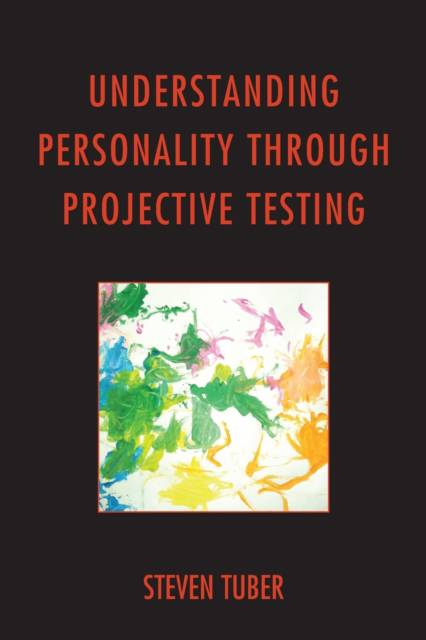
- Retrait gratuit dans votre magasin Club
- 7.000.000 titres dans notre catalogue
- Payer en toute sécurité
- Toujours un magasin près de chez vous
- Retrait gratuit dans votre magasin Club
- 7.000.0000 titres dans notre catalogue
- Payer en toute sécurité
- Toujours un magasin près de chez vous
94,95 €
+ 189 points
Format
Description
The past forty years have revealed a myriad of theoretical advances to Freud's original conceptions of the personality. It has also witnessed the continued use of projective methods as a vital means of understanding the what and the how of mental health and psychopathology. Understanding Personality Through Projective Testing provides the reader with a comprehensive framework for linking these revitalized key domains of personality functioning to the quality of responses to projective testing in both children and adults. Six core aspects of personality: two facets of object relations (moving towards and away from self and others); the quality of defense mechanisms; the nature of affect maturity; the integrity of autonomous ego functioning and the capacity for playfulness are defined, articulated, and linked to one another in a reciprocal manner. Four commonly used projective testing methods: the Rorschach Inkblot Method (RIM); the Thematic Apperception Test (TAT), the Sentence Completion Test (SCT), and the Animal Preference Test (APT) are then described in detail. Each of these projective methods is in turn presented as dynamically-based tools to indicate the relative performance of the patient across the six core personality domains. Clinical case examples provide both the beginning and more seasoned clinician with a comprehensive psychodynamic paradigm with which to view each of the testing methods, as well as enhanced methods with which to use each of the tests more subtly and hence with greater clinical acumen. A comprehensive battery of projective testing is then assessed through the protocol of a single adult patient, allowing the reader to integrate the value of each of the individual projective methods into a comprehensive assessment of the whole person. Readers will find the book a vital complement to both standard reference works on projective methods as well as books that describe personality along developmental and psychodynamic lines.
Spécifications
Parties prenantes
- Auteur(s) :
- Editeur:
Contenu
- Nombre de pages :
- 254
- Langue:
- Anglais
Caractéristiques
- EAN:
- 9781442235113
- Date de parution :
- 18-03-14
- Format:
- Livre broché
- Format numérique:
- Trade paperback (VS)
- Dimensions :
- 160 mm x 229 mm
- Poids :
- 385 g

Les avis
Nous publions uniquement les avis qui respectent les conditions requises. Consultez nos conditions pour les avis.






